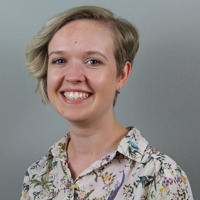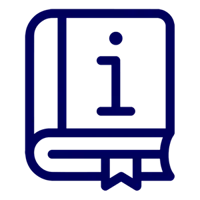
Sarah Holden
Software Developer / Data Scientist at Capgemini UK
You don't have to know what you want to 'do' forever. Think about what kind of person you want to be, what you're good at, and what you enjoy. Try and find a job that lets you be yourself and do things you enjoy. You can always change jobs if you don't like the one you pick first.
About Sarah...
Who am I?
"My personality types are 'Communicator' 'Investigator' and 'Trainer'. I think these match me very well. Communicator: In my job, I listen to the problems a person is having doing their job, and then try to work out what I could do to solve their problems. The solution is usually to build them some new software (apps), or to improve the software they already have. Software can be quite confusing, so I have to tell them the solution in a simple way, otherwise they won't know if the solution will work for them. Then I have to talk to the people who build the software (software developers), and describe the solution to them. They need to know all of the details about how the solution is supposed to work, so that they can build the right thing. So I have to communicate the solution in different ways depending on who I'm talking to. Investigator: Working out how to solve someone's problem means becoming an investigator! I have to ask them lots of questions about what they do, how they do it, and why it's not working. I have to understand what their job is, and that can be complicated, so I have to ask sensible questions in a logical order. Trainer: My job is to solve other people's problems. This means I need to be understanding and helpful, listen carefully, and explain things simply. Sometimes I even need to train people in how to use the software once we've built it."
What do I do?
"I am a business analyst - I try to understand other people's jobs, listen to the problems they are having, and work out what software (apps) could be built to help fix the problems. I usually work in between two different teams of people: 1) the people who are having a problem doing their job 2) the people who develop software that helps people do their jobs. I talk to team 1 to understand the problem, then talk to team 2 to tell them what they need to build to fix the problem.I most enjoy working with interesting scientists to solve difficult problems. The people I work with are doing cool science, and I get to talk to them about it. I work for a consultancy, which means I actually work for lots of different companies (clients). Each client comes to the consultancy with a problem, and the consultancy sends people to help them (I am one of the people). This means I work with lots of different scientists doing lots of different things! Each day is different, so I never get bored.The starting salary for my role is ~£30,000."
How did I get here?
"I have never known what I wanted to do and I still don't really know! I went to college and studied psychology, chemistry and English language. Then I went to university and studied psychology (a great degree for those who don't know what they want to do!). I didn't know what I wanted to do when I finished my degree, so I stayed at university and did a PhD in psychology. I still didn't know what I wanted to do when I finished that, but I didn't enjoy the PhD that much, so decided I should get a job somewhere else. I wrote a list of the things I was good at and enjoyed: working with people, talking to people, solving problems, thinking outside of the box, being organised, learning about science, writing code, writing about science. 'Data Scientist' was a big buzz-word when I was looking for a job, and it looked like it would let me do the things I enjoyed, so I thought I'd give that a go. Luckily, I applied to work for a company where what role you do is very flexible, so over the last 5 years I've been able to try different roles to see if I like them. I had a go at being a data scientist and a software developer, but I didn't enjoy them much. I thought I might quite like the Business Analyst role instead, so that's what I tried next - I enjoyed it and have been doing that ever since. "
The life I live
"I like being outdoors - walking, cycling, climbing, swimming, growing vegetables. I also like spending time with friends and family, reading and watching films and TV.I have 3 pet rabbits who run about freely in my garden during the daytime. They were kept in hutches before I adopted them so they had to learn how to run again - they can go really fast when they have lots of room and you can waste hours watching them hop about!My interesting fact is that I once had a great friend who was 94 years old! We met during the COVID-19 pandemic and became quite close. She had some very interesting stories to tell and was a great listener too!"
My typical day
"I am usually working on two or three projects at a time, so I try to spend a few hours on each one every day. Each project is with a different Client, who has a problem that they need help solving. 40% of my time is spent talking to my clients - we talk about what they have to do in their job, what their problems are, and what kind of software (apps) they're currently using. We talk about what they wish the software would do to help them more. Sometimes I travel to their offices to speak with them about these things in person, but this is rare as we try to be sustainable and avoid unnecessary travel. 20% of my time is spent writing down what my client needs their software to do. I have to write it down really clearly to make sure the software developers know exactly what to build. 10% of my time is spent talking to software developers. It's very difficult to write down exactly what they need to build, and they often have lots of questions. It's my job to answer their questions, and sometimes this means going to back to ask more questions to my clients. 10% of my time is spent learning how to do new things! There's always new stuff to learn to be able to do my job better. This means lots of Googling.10% of my time is spent line managing. Where I work, line managers are responsible for making sure their staff are happy doing their jobs and helping them to learn new things and develop their careers. I enjoy this part of my job a lot, and it is very rewarding. 10% of my time is spent doing general admin like sending out meeting invitations, replying to emails and submitting my timesheet. "
My qualifications
"A-level Chemistry - BA-level Psychology - AA-level English Language - ABSc Psychology - 1st ClassMSc Brain Imaging - 1st ClassPhD Psychology (Visual Neuroscience)I applied for my job at Capgemini straight after my PhD and have been there for the last 5 years.Studying science at university taught me lots of specific knowledge and skills, like how to write Python code and how the different areas of the brain work. But it also taught me lots of more general skills - it taught me how to find good resources online, how I learn best (by doing or drawing, not reading or writing) how to manage my time, how to write good notes, how to write good essays, how to explain complex ideas in simple language, how to make good presentations, how to ask good questions, how to think logically, and many more things. It's been these general things that have been valuable in my job, rather than the specific knowledge or skills I learnt. To do my job I needed a background in science so that I could more easily understand the science my clients are working on. I also needed some coding skills, which I got in Python and Matlab during my PhD, and I needed strong communication skills to help me to talk to clients and understand their needs. The soft-skills like communication and presentation were just as important in me getting my job as my ability to write Python code. "



